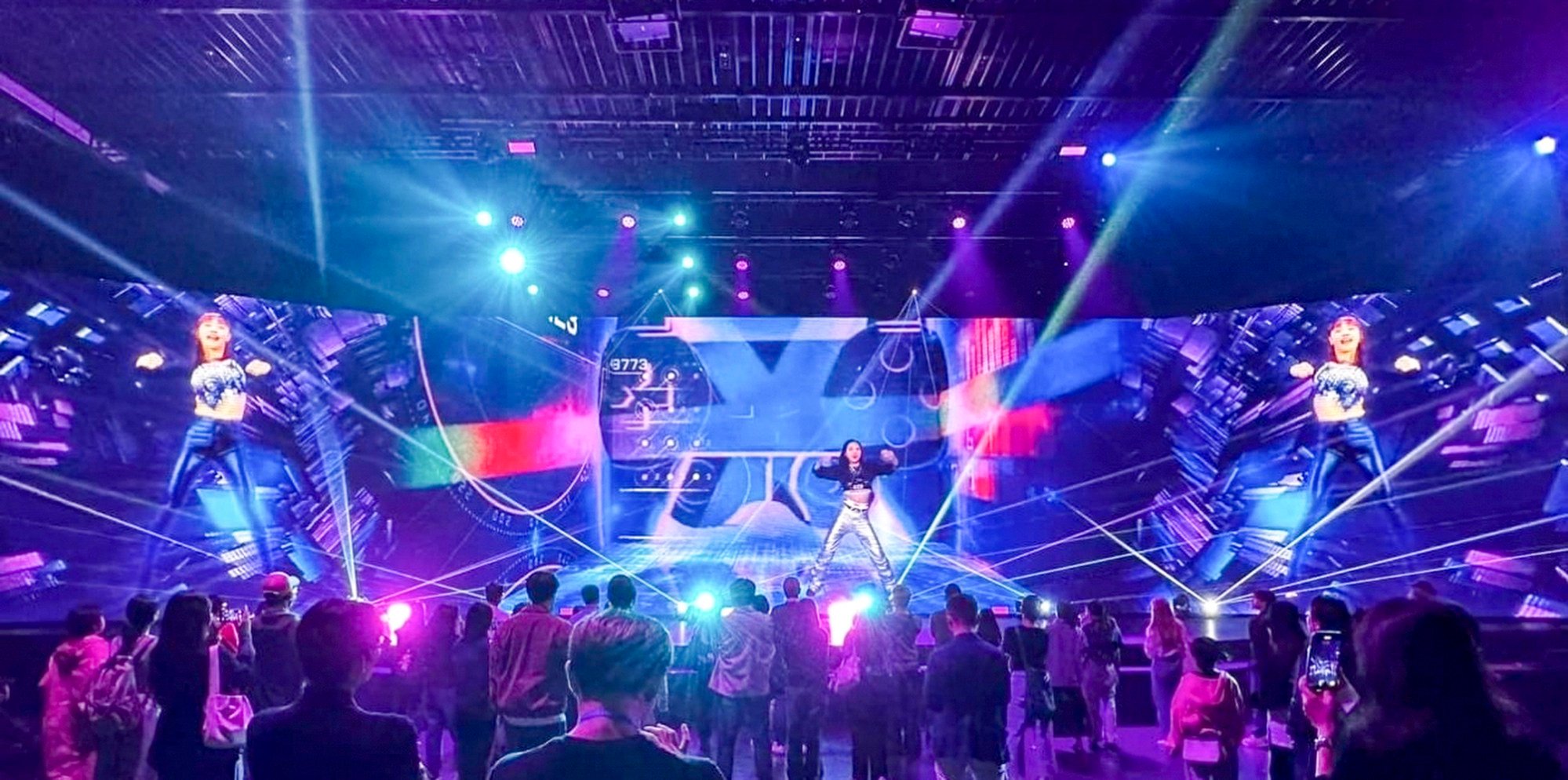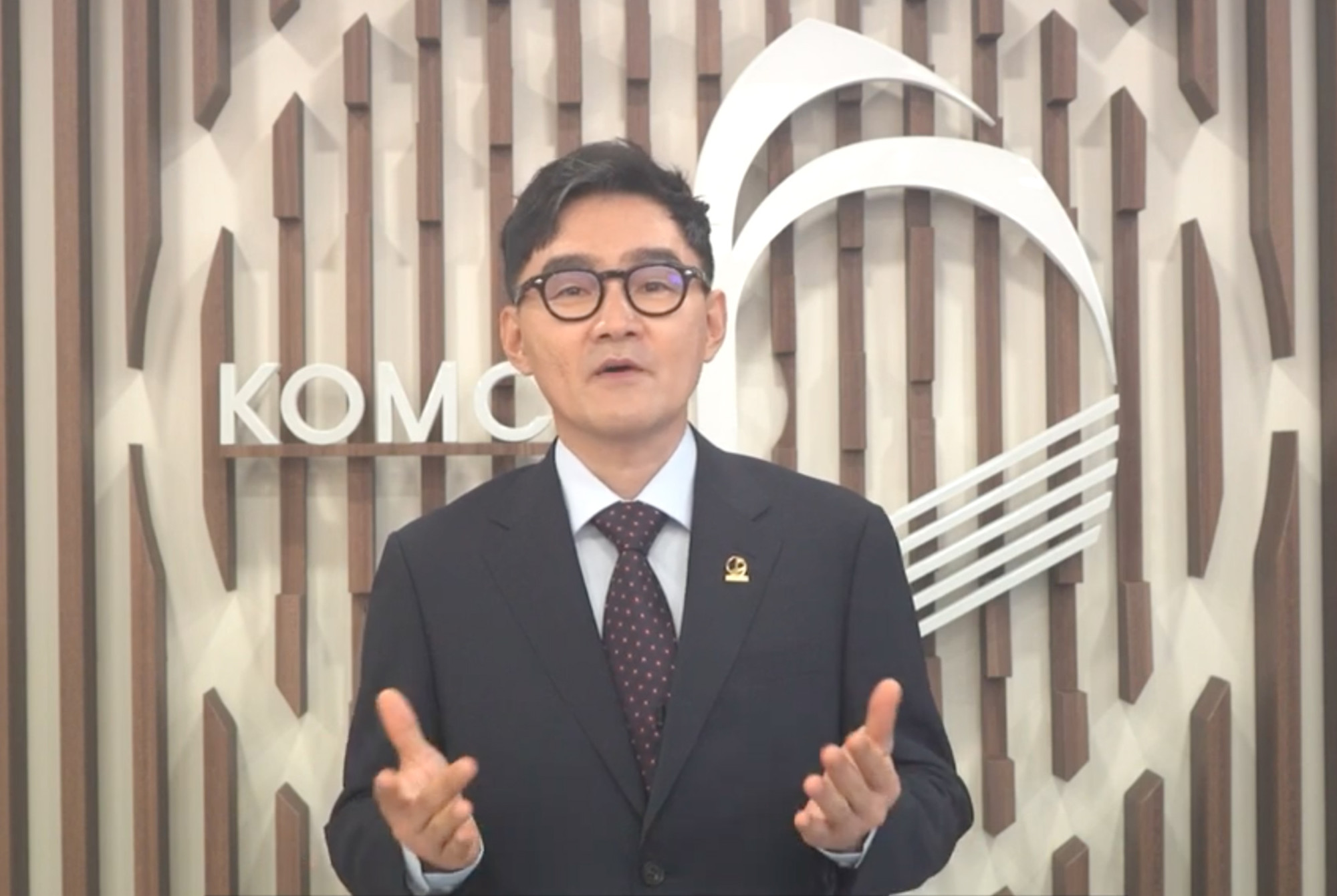The project was spearheaded by Hybe’s interactive media arm Hybe IM, and AI audio tech start-up Supertone. Hybe acquired Supertone for 45 billion won (US$36.5 million) in January.
They’re not human? AI-powered K-pop girl group Mave: eye global success
They’re not human? AI-powered K-pop girl group Mave: eye global success
“We tried to utilise AI without distorting our artist’s voice and message,” Hybe IM CEO Chung Woo-yong said in May, adding that the company plans to team up with other artists under Hybe’s roof in the future.
Naevis is already a familiar name to most K-pop fans, as she has frequently featured in girl group Aespa’s promotional content. Although details are still being kept under wraps, SM’s former CEO Lee Sung-soo hinted that the label would work hard to make Naevis look flawless in terms of movement, voice and communication skills.
“Virtual idols will continue to emerge,” music critic Kim Do-heon says. “As of now, many of them still cling to the K-pop system and perform the songs written by K-pop songwriters. But if they further utilise AI technology in the creative process of their music, they are likely to make another breakthrough.”

There has been a surge in the number of AI composers that can produce music in just a few minutes, and although critics point out that the quality is not yet comparable to that of human beings, they are learning fast.
“It seems the songs by Korean AI composers need more digging into melodies, progressions and lyrics,” Kim, the music critic, noted. “But as evidenced by the case of Google’s AI-based text-to-music model, Music LM, the technology is growing at a fast pace abroad and it can now generate music of a specific genre or a vibe you want.”
Virtual social media influencers: more real than real ones?
Virtual social media influencers: more real than real ones?
AI is an unwelcome guest for some human composers.
The Korea Music Copyright Association (KOMCA), a non-profit copyright collective for musical works that has more than 47,000 members nationwide, asserts that AI could disrupt the music industry.
“A lot of people prefer AI-made songs because they are often free to use,” said an official at KOMCA. “Given that AI songwriters can produce music very quickly without big restraints, it is taxing for their human counterparts to go head-to-head with them.”
If AI composers reign supreme, they could bring chaos to the music industry, the association explained.
“If AI-made tracks take over the music scene, they can pose a threat to the livelihood of human composers, who will see a significant fall in income. Since they lack legal protection at the moment, AI’s dominance can deal a critical blow to them and we may even witness technology’s encroachment on the territory of culture.”

“As AI studies large databases of music, it can infringe on the copyright of the composers who wrote the original songs,” the KOMCA official said.
“We also do not have clear criteria to decide whether AI has committed plagiarism and that is why we think its developers should be required to disclose which songs they used as training data. These people should give copyright holders the fair compensation they deserve.”
There is another hot-button issue: AI composers do not receive any music royalties, as current copyright law only recognises human creations as copyrighted materials.
Virtual influencers are becoming more like us. Should we be worried?
Virtual influencers are becoming more like us. Should we be worried?
But what if AI collaborates with a human partner? KOMCA believes it can trigger another dispute over the ownership of copyright, given that there is no law about such cases.
“We need more laws regarding the copyright of AI-produced songs,” Kim, the music critic, pointed out. “And now it is time to bring this issue to the table. Since we do not have many references at home and abroad, we first have to scrutinise different cases to come up with adequate solutions.”

